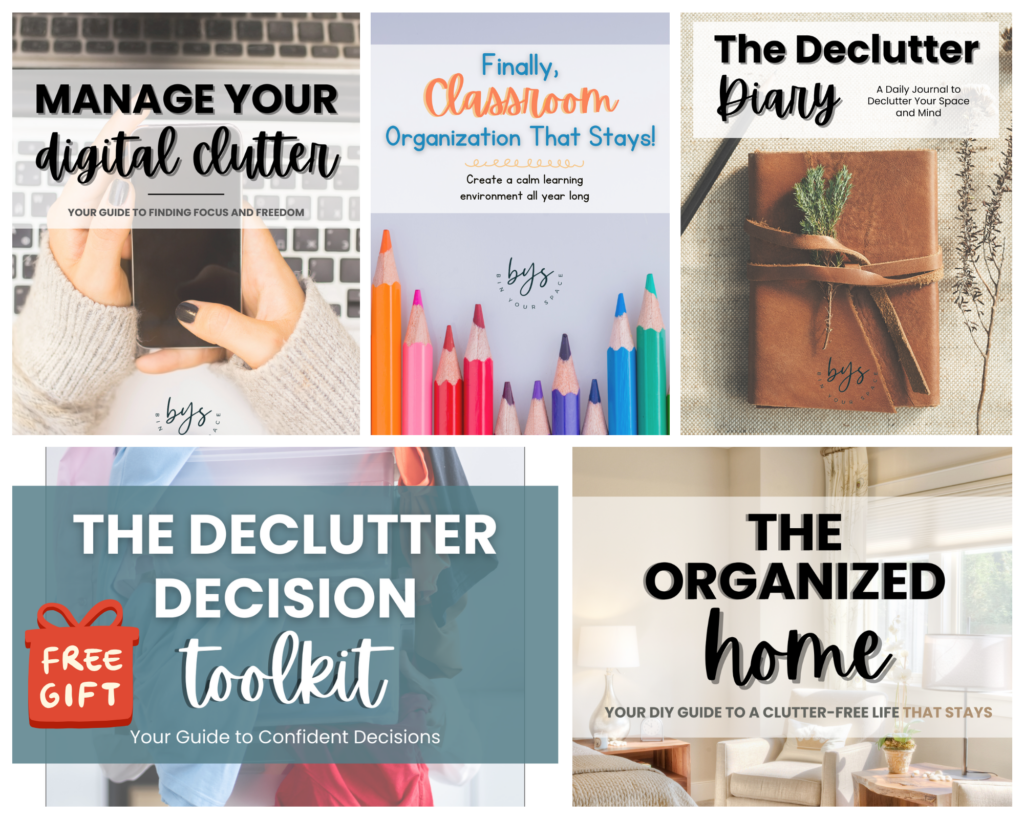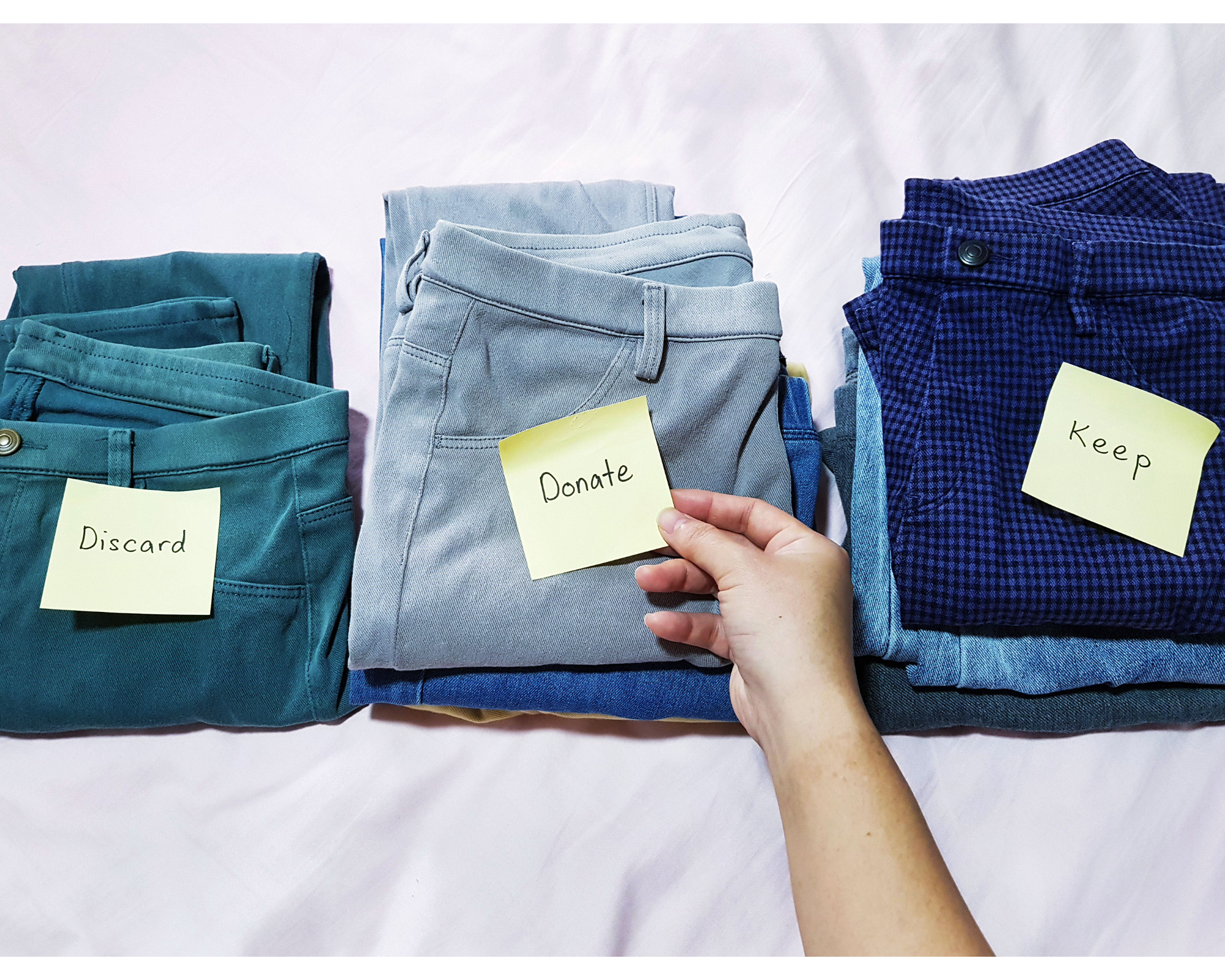Ever feel like your belongings multiply over night, always finding room in already full spaces? It’s like we’re all collecting items “just in case” but they never actually get used. If this sounds familiar, you’re not alone.
This is what I call the “Just in Case” Conundrum—that tendency we all have to hold onto things for a hypothetical future that often never arrives. This cycle of clutter drains your energy and mental space.
And the truth is, the “case” we’re saving for rarely ever happens. So, the real question isn’t why we do this, but how we can finally figure out what’s worth holding onto and what’s ready for its next chapter.
So, let’s take a breath and start shedding some of that “just in case” weight together, making room for more space—both physically and mentally.
Why We Hold On: The Psychology of “Just in Case”
That little voice that pops into our heads when we’re decluttering often boils down to a few common feelings and thought patterns. These are the excuses that justify holding onto that slightly stained tablecloth, the five extra phone chargers, or that collection of mismatched buttons.
But let’s be real: how often does that “just in case” scenario actually happen? And at what cost do we hold onto these maybe-someday items?
It’s not just about the stuff, though. They eat up our precious space, make everything feel visually messy, and they can even add to that general feeling of being overwhelmed.
So, why do we hold on?
- The Fear of Future Lack – We’re wired to avoid losing out. Getting rid of something feels like a potential future loss if we end up needing it.
- Uncertainty Avoidance – Life is unpredictable, and holding onto items can give us a false sense of control over what might happen. That old wrench? “Just in case” the new one breaks.
- Sentimental Hang-ups – Sometimes, “just in case” is just a small excuse to hold onto items tied to memories, even if we never use them.
The Usual “Just in Case” Suspects
You know them—those items we’re holding onto just in case. They’re found in almost every home.
- Extra gadgets and tools – That bread maker you used twice, the specialty cake pan, random Allen wrenches.
- Clothing that no longer fits – “Maybe I’ll fit into it again someday!”
- Old electronics and cables – For devices we no longer own or ones that do not work.
- Mismatched household items – socks, lidless containers, chipped mugs.
Three Questions to Ask
So, what’s the game plan for actually letting go? Here are some questions that I find helpful when I’m on the fence about an item. The goal here isn’t to become a ruthless minimalist overnight, but to become a more conscious user of your belongings.
1. Have I used this in the past year? Be honest! If not, what’s the realistic likelihood of needing it in the next year?
2. If I did need this, could I easily borrow, rent, or replace it? Consider the accessibility and actual cost (time and money) of alternatives.
3. Is the potential future need truly worth the current space and mental energy it’s costing me? Be honest about the trade-off.
4. Am I holding onto this out of genuine potential use, or is there an underlying sentimental reason? If it’s sentiment, could a photo or a smaller, more meaningful memento take its place?
Take Action with Your New Decluttering Bestie: The Holding Bin
You know that really good box you’ve been saving “just in case?” Well, this is the case!
Meet the Holding Bin. It’s a designated cardboard box for your “just in case” items. I love using cardboard boxes because you can fill one up, drop it off, and go! This method is perfect for keeping clutter from accumulating while you make a final decision.
Here’s how to use it:
- Start with one item. Take a quick walk around your home and identify one item you’re keeping solely on the off-chance you might need it someday.
- Ask yourself: “What’s the worst that would happen if I didn’t have this?” Your answer might surprise you!
- Find more. Try this for a week—find one item each day to add to your Holding Bin. Or, if you’re feeling really inspired, try it for a whole month.
- Set a reminder. Set a calendar reminder for six months from today. If you haven’t used the items in your bin by then, it’s time to donate them. If you do end up needing something, you’ll naturally take it out of the bin and put it to practical use.
By gently but firmly challenging the “just in case” thinking pattern, you can free up significant space and mental clutter, making room for the things you truly need, use, and love.
Ready for more decluttering support? My DIY Guides offer additional tips for tackling expired items and digital clutter. You can find them and other helpful tools here: www.binyourspace.com

Bonnie Hintenach | Bin Your Space
Professional Organizer for Homes and Classrooms
Maryland Organizer
